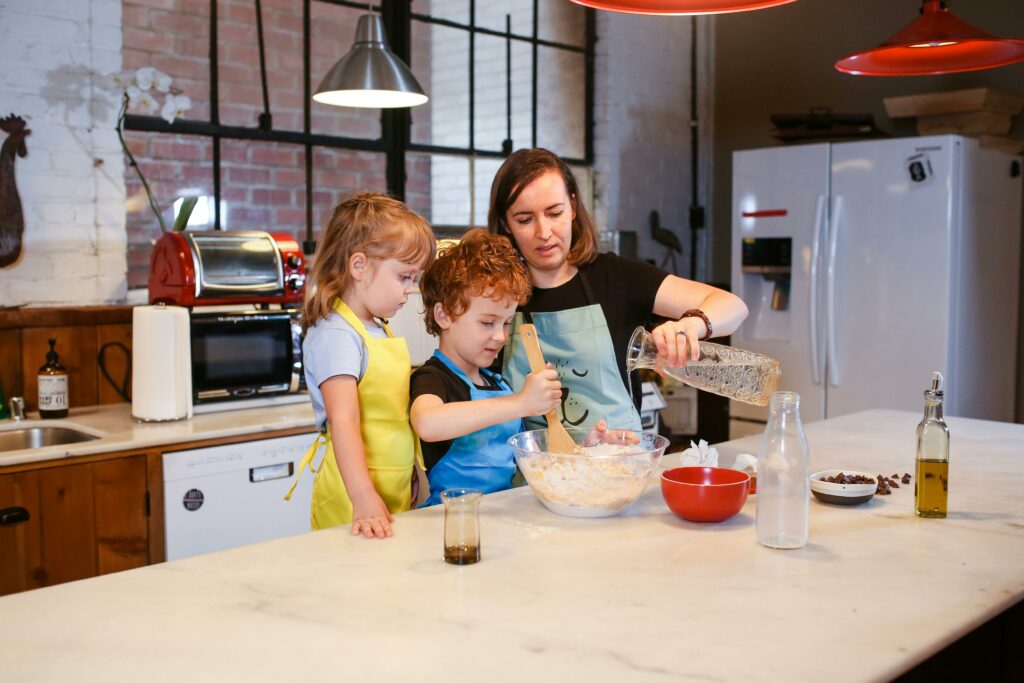Hands-On Activities for Preschoolers & September Newsletter
go.ncsu.edu/readext?1019242
en Español / em Português
El inglés es el idioma de control de esta página. En la medida en que haya algún conflicto entre la traducción al inglés y la traducción, el inglés prevalece.
Al hacer clic en el enlace de traducción se activa un servicio de traducción gratuito para convertir la página al español. Al igual que con cualquier traducción por Internet, la conversión no es sensible al contexto y puede que no traduzca el texto en su significado original. NC State Extension no garantiza la exactitud del texto traducido. Por favor, tenga en cuenta que algunas aplicaciones y/o servicios pueden no funcionar como se espera cuando se traducen.
Português
Inglês é o idioma de controle desta página. Na medida que haja algum conflito entre o texto original em Inglês e a tradução, o Inglês prevalece.
Ao clicar no link de tradução, um serviço gratuito de tradução será ativado para converter a página para o Português. Como em qualquer tradução pela internet, a conversão não é sensivel ao contexto e pode não ocorrer a tradução para o significado orginal. O serviço de Extensão da Carolina do Norte (NC State Extension) não garante a exatidão do texto traduzido. Por favor, observe que algumas funções ou serviços podem não funcionar como esperado após a tradução.
English
English is the controlling language of this page. To the extent there is any conflict between the English text and the translation, English controls.
Clicking on the translation link activates a free translation service to convert the page to Spanish. As with any Internet translation, the conversion is not context-sensitive and may not translate the text to its original meaning. NC State Extension does not guarantee the accuracy of the translated text. Please note that some applications and/or services may not function as expected when translated.
Collapse ▲Hands-On Activities for Young Children
In a world where technology is king, it can be difficult to encourage children to set devices aside for hands-on play. This article will go over some different fun activities that children can do that encourage development and spark opportunities for critical thinking.

Activities:
- Making art from nature – Take a walk outside and collect little things along the way. Simple things like leaves and tiny rocks that your child finds interesting will do. Then grab a poster board or piece of cardboard and some glue. Help your child glue these items in various patterns to create a piece of nature art.
- Homemade Play dough – Gather supplies and spend the afternoon making homemade play dough or slime. This is a great hands-on activity that is also a sensory activity. Iowa State University has a great recipe for homemade play dough and homemade chalk here.
- Bake together – Find your favorite cookie recipe and bake together. Children can learn so many skills just by baking with an adult at home. They gain skills with counting, measuring, food safety, and handwashing. Even rolling out dough and cutting the shapes develop motor skills. Here’s a recipe for chocolate chip cookies made with NC wheat flour.
- Work on a puzzle – Find puzzles that are easy enough for your child to complete without getting frustrated, but that also provide a bit of a challenge. This will require them to use critical thinking skills while also being fun. If you really enjoy puzzles, consider a puzzle race!

For more on parenting tips, building social skills, and games/activities, check out the Growing Together September Newsletter for parents of young children. The last page includes a calendar of activities to try this month.




